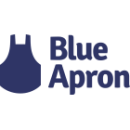
New York tech companies have a habit of growing at a fast pace. As such, the city has become home to a number of ‘unicorns’ — which is startup speak for companies valued at $1 billion or more — over the past several years.
The handful of companies to reach the unicorn echelon stretch across a number of industries, from media to adtech to e-commerce. While these tech companies are among the most successful in New York City, employees are at the core of a unicorn’s growth, building technology that can scale.
We caught up with some of New York City’s unicorn club members to find more about the technology behind their platforms and the coding languages they’re often looking for in talent.

Ruxandra Levy, Director of Mobile Engineering at Gilt

Built In: What coding languages does Gilt most often hire for and why?
Ruxandra Levy: Scala for service-side development, Swift for iOS and Apple TV apps, Java for Android apps.
Built In: Are there certain coding languages that Gilt sees as more valuable in a developer's skillset?
RL: We tend to look more at how candidates think through solving a problem, assuming that languages can be picked up with a certain amount of experience. However, excitement and interest in the languages we use always helps.
Built In: Which coding languages seem most likely to grow in usage and importance in the future in your industry?
RL: Swift is a young language, however we've been enjoying using it for the past year and a half. We launched an initiative to replace pieces of our iOS app written in Objective-C and an in-house build framework with Swift, and we’ve come a long way since then. Our Apple TV app which we released last year was a good use case which proved that we can build faster and more stable apps in Swift than we did before.

Swati Vauthrin, Director of Engineering at BuzzFeed

Built In: What coding languages does BuzzFeed most often hire for and why?
Swati Vauthrin: At BuzzFeed we’re currently looking for engineers that have experience with Python. However, we don’t exclusively look for just these types of engineers. What matters to us the most is how engineers are approaching problems and using critical thinking to solve those problems regardless of the coding language.
BI: Are there certain coding languages that BuzzFeed sees as more valuable in a developer's skill set?
SV: Not really! If you’re excited about challenging work, looking to solve interesting problems, and want to work with some awesome people, then we want to learn more about you.
BI: Which coding languages seem most likely to grow in usage and importance in the future in your industry?
SV: We’re seeing a few languages that are starting to stand out more. One is Python with its ease of use, various frameworks, readability, and maintainability. In addition, we’re starting to see the rise of Golang being used for when performance is tied with concurrency as top requirements. We are already using it for some of our heavy data-processing applications.

Mark Humphrey, Engineering Manager at Compass

Built In: What coding languages does Compass most often hire for and why?
Mark Humphrey: Compass seeks out people with a proven track record of solving hard problems. The engineering team focuses on problem-solving skills over knowledge of specific programming languages. At Compass, most development is done using Java, Python and JavaScript, but we also use Go and Swift. We have successfully hired people who have experience with all or none of these languages. We try to keep up to date with technologies — we just upgraded to Swift 3.0, we use ES2015 (ES6), and are starting to use Spark and gRPC.
Built In: Are there certain coding languages that Compass sees as more valuable in a developer's skillset?
MH: Given the fast-paced nature of the tech industry, we believe that companies will prioritize an engineer’s ability to learn quickly and have an impact over the specific coding languages they know. We do see certain trends influencing language popularity: big data and microservices.
With more and more companies processing large datasets, demand for engineers with experience with data processing frameworks like Spark will grow. At Compass, we use Spark in concert with Python to ingest large amounts of data, make it available to applications, and allow data scientists to leverage the same framework as data engineers.
Languages that facilitate microservices will become more valuable as more companies adopt this architecture. At Compass, we use Java, Python, and Go to build services.
In the frontend world there are frameworks, libraries, and build tools born and updated every single day. Because of this, at Compass we value mastery over the core underlying language of JavaScript because it gives one the ability to learn any framework or library faster. The framework of today may not be the same framework the industry moves to tomorrow.
Built In: Which coding languages seem most likely to grow in usage and importance in the future in your industry?
MH: We see Go continuing to increase in popularity given its strong standard library and powerful concurrency primitives. JavaScript’s popularity will grow as well due to its ubiquity, upcoming changes to the ECMAScript standard, and the growing NodeJS community.

Andrew Hogue, VP of Engineering at Blue Apron

Built In: What coding languages does Blue Apron most often hire for and why?
Andrew Hogue: Our core backend stack is Ruby on Rails, but we also hire for Python developers as well. For frontend, we use Javascript, Ember.js, and Backbone.js.
BI: Are there certain coding languages that Blue Apron sees as more valuable in a developer's skillset?
AH: We have a fairly practical engineering team – we look for engineers who know how to get things done, who are eager to learn and expand their skills, and who value shipping high-quality products. Specific languages are less important than a willingness to learn and grow.
BI: Which coding languages seem most likely to grow in usage and importance in the future in your industry?
AH: For technology-enabled companies like Blue Apron, we value flexible languages that focus on developer productivity and scaling. It's a right-tool-for-the-job kind of industry, so we believe frameworks like Rails, React JS, and Python will continue to be very useful in the future.
Know of a company that deserves coverage? Let us know or tweet us @builtinnewyork.






